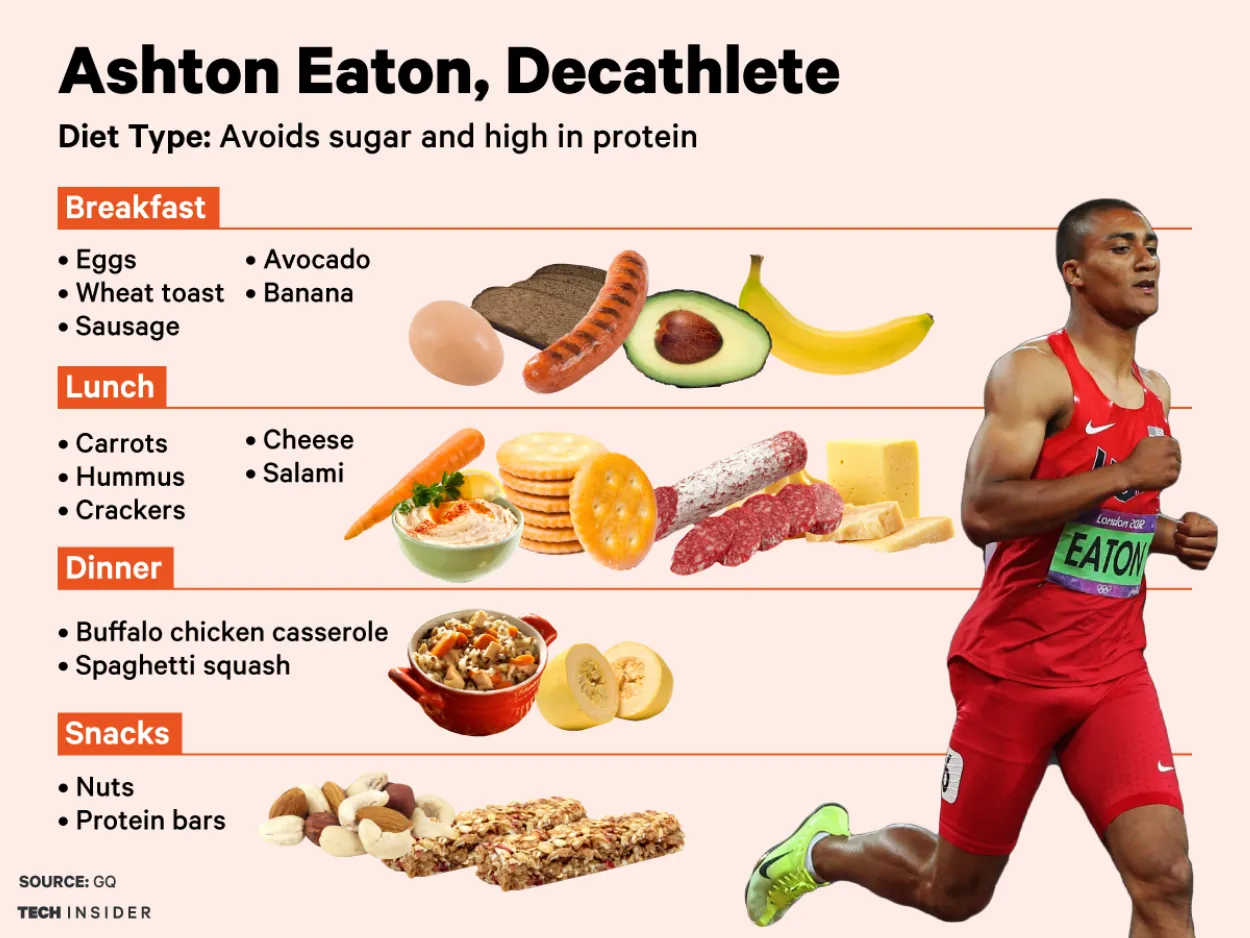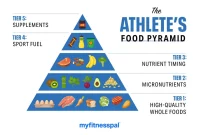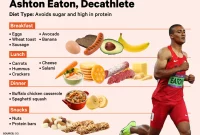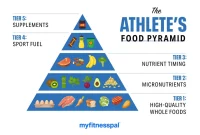When it comes to fueling their bodies for athletic performance, athletes must strike the perfect balance between carbs and protein. Carbohydrates provide the necessary energy for intense workouts, while protein aids in muscle repair and growth. In this article, we will delve into the importance of balancing these two macronutrients to optimize athletic performance.
The Role of Carbohydrates in Athletic Performance
When it comes to athletic performance, carbohydrates play a vital role in fueling the body and optimizing performance. Carbohydrates are the body’s primary source of energy and are essential for athletes to perform at their best.
During exercise, carbohydrates are broken down into glucose, which is then used by the muscles as a fuel source. The body stores carbohydrates in the form of glycogen in the muscles and liver, providing a readily available source of energy during physical activity.
Consuming an adequate amount of carbohydrates before exercise ensures that the body has enough glycogen stores to utilize during activity. This allows athletes to maintain optimal energy levels and sustain their performance for longer durations.
The Importance of Carbohydrate Timing
The timing of carbohydrate intake is crucial for athletes. Consuming carbohydrates before exercise helps top up glycogen stores, while consuming them during exercise can help maintain energy levels and improve endurance.
Additionally, replenishing carbohydrates after exercise is essential for muscle recovery and glycogen resynthesis. This will help athletes recover faster and prepare their bodies for future training or competitions.
Carbohydrates vs. Protein for Athletic Fueling
While protein is important for muscle repair and growth, carbohydrates take center stage when it comes to fueling athletic performance. Carbohydrates provide a quick and efficient source of energy, whereas protein is primarily used for building and repairing tissues.
Athletes should focus on consuming a balanced diet that includes both carbohydrates and protein. Carbohydrates should make up the majority of caloric intake, especially before and during exercise, while protein intake should be sufficient to support muscle recovery.
It’s important to note that not all carbohydrate sources are equal. Opt for complex carbohydrates such as whole grains, fruits, and vegetables, as they provide sustained energy and valuable nutrients. Avoid excessive intake of simple sugars, as they can lead to energy crashes and hinder performance.
Hydration and Carbohydrate Intake
In addition to consuming an adequate amount of carbohydrates, athletes must also prioritize hydration. Water is essential for optimal performance and helps transport carbohydrates and other nutrients to the muscles.
It’s recommended to consume fluids before, during, and after exercise to maintain proper hydration levels. Sports drinks that contain carbohydrates and electrolytes can be beneficial for longer or more intense workouts.
In Summary
Carbohydrates play a critical role in supporting athletic performance. They provide the necessary fuel for optimal energy levels and help maintain endurance during exercise. Timing carbohydrate intake, consuming a balanced diet, and staying hydrated are key factors in maximizing athletic performance.
Protein Intake for Muscle Recovery
When it comes to athletic fueling, balancing carbs and protein is crucial for optimal performance and muscle recovery. Protein plays a vital role in repairing and building muscle tissues, making it an essential component of every athlete’s diet.
To maximize muscle recovery, it is recommended to consume protein shortly after engaging in intense physical activity. This helps to replenish depleted energy stores, repair damaged muscle fibers, and promote muscle growth and strength.
The exact protein intake for muscle recovery varies depending on factors such as body weight, exercise intensity, and training goals. However, a general guideline is to consume around 20-30 grams of protein within 30 minutes after a workout. This can be achieved through protein-rich foods such as lean meats, poultry, fish, eggs, dairy products, legumes, and protein supplements.
Additionally, distributing protein intake evenly throughout the day is beneficial to support continuous muscle recovery and growth. Aim to include protein-rich foods in every meal and snack to ensure a steady supply of amino acids for muscle repair.
It is worth noting that while protein is essential, carbohydrates also play a significant role in athletic fueling. Carbohydrates provide the necessary energy for exercise and help replenish glycogen stores in muscles. Balancing carbohydrate and protein intake is key to optimize athletic performance and enhance muscle recovery.
In conclusion, protein intake is crucial for muscle recovery in athletes. Consuming adequate amounts of protein, especially after workouts, promotes muscle repair and growth. Remember to balance protein intake with carbohydrates to achieve optimal athletic fueling.
Ideal Carb-Protein Ratios for Athletes
Athletes require a well-balanced diet to support their rigorous training and maximize their performance. One important aspect of their nutrition is finding the right balance between carbohydrates and protein. The ideal carb-protein ratios for athletes can vary depending on their specific goals and the type of exercise they engage in.
Endurance athletes:
Endurance athletes, such as marathon runners and long-distance cyclists, rely heavily on carbohydrates for sustained energy. The recommended carb-protein ratio for these athletes is generally around 3:1 or 4:1. This means that for every gram of protein, they should consume around 3 to 4 grams of carbohydrates.
Strength and power athletes:
Strength and power athletes, such as weightlifters and sprinters, require a higher protein intake to support muscle growth and recovery. For these individuals, a ratio of around 2:1 or 3:1 (carbs to protein) is generally recommended.
Mixed-sport athletes:
For athletes who engage in a variety of sports or exercises, the ideal carb-protein ratio may fall somewhere in between the ratios mentioned above. These individuals might benefit from a ratio of 2:1 or 3:1, depending on the intensity and duration of their activities.
It’s important to note that the specific needs of each athlete may vary, and it’s best to consult with a registered dietitian or sports nutritionist to determine the ideal carb-protein ratio for individual circumstances.
Pre- and Post-Workout Nutrition
In order to properly fuel your athletic performance, it is crucial to find the right balance of carbohydrates and protein both before and after your workouts. These nutrients play a key role in providing energy and aiding in muscle recovery.
Pre-Workout Nutrition
Prior to your workout, consuming a combination of carbohydrates and protein is important to maximize performance. Carbohydrates serve as the primary source of fuel for your muscles, while protein helps to support muscle growth and repair. Aim to consume a light meal or snack containing both of these nutrients around 2-3 hours before your exercise session.
- Good sources of carbohydrates include whole grains, fruits, and vegetables.
- Protein-rich foods, such as lean meats, eggs, and dairy products, are great choices to pair with your carbohydrates.
Post-Workout Nutrition
After your workout, your body needs to replenish its energy stores and repair damaged muscles. Consuming a combination of carbohydrates and protein within 30 minutes to an hour after your workout is ideal for optimal recovery.
- Carbohydrates help to replenish glycogen stores, while protein aids in muscle repair and growth.
- Reach for quick-digesting carbohydrates like bananas, rice, or whole wheat bread, and lean sources of protein like chicken, fish, or tofu.
Remember to stay hydrated throughout your workout and consume plenty of water before, during, and after exercise. Additionally, it is important to listen to your body and adjust your nutrition according to your unique needs and goals.
Debunking Myths about Carbs and Protein
When it comes to athletic fueling, the balance between carbs and protein is often a topic of debate. There are several myths surrounding these two macronutrients that need to be debunked in order to make informed decisions about proper fueling for athletic performance.
Myth 1: Carbs are bad for athletic performance
Contrary to popular belief, carbs are actually essential for optimal athletic performance. Carbohydrates are the primary source of fuel for muscles during exercise, providing quick energy. They are stored in the body as glycogen and are necessary for both aerobic and anaerobic activities, ensuring sustained energy levels and preventing fatigue.
Myth 2: Protein is more important than carbs
While protein plays a crucial role in repairing and building muscles, it is not a substitute for carbs when it comes to fueling for athletic activities. Protein is primarily responsible for muscle repair and recovery post-workout, whereas carbs provide the necessary energy during exercise. Both macronutrients have unique functions and should be consumed in appropriate amounts.
Myth 3: High-protein, low-carb diets improve performance
Some athletes may opt for high-protein, low-carb diets with the misconception that it will enhance their athletic performance. However, research suggests that this type of diet is not beneficial for sustained high-intensity exercise. Carbs are the body’s preferred energy source during intense workouts, so limiting their intake can lead to decreased performance and potential muscle loss.
Myth 4: Timing of carb and protein intake doesn’t matter
The timing of carb and protein intake is crucial for optimum athletic fueling. Consuming carbs before exercise helps top up glycogen stores, providing readily available energy. Protein intake should be spread throughout the day, with a focus on post-workout consumption to support muscle recovery. Combining both macronutrients in a balanced meal or snack after workouts can optimize recovery and fuel utilization.
Myth 5: A one-size-fits-all approach to carb and protein ratios
Each athlete has unique nutritional needs, so a one-size-fits-all approach to carb and protein ratios is not recommended. Factors such as body weight, activity level, type of sport, and individual goals should be considered when determining the appropriate balance. Consulting with a sports nutritionist or registered dietitian can help tailor a fueling plan that best meets individual needs.
Conclusion
In conclusion, finding the right balance between carbohydrates and protein is crucial for effective athletic fueling. Carbs provide the necessary energy for optimal performance, while protein aids in muscle repair and recovery. By understanding individual needs and adjusting intake accordingly, athletes can maximize their performance and overall health.




